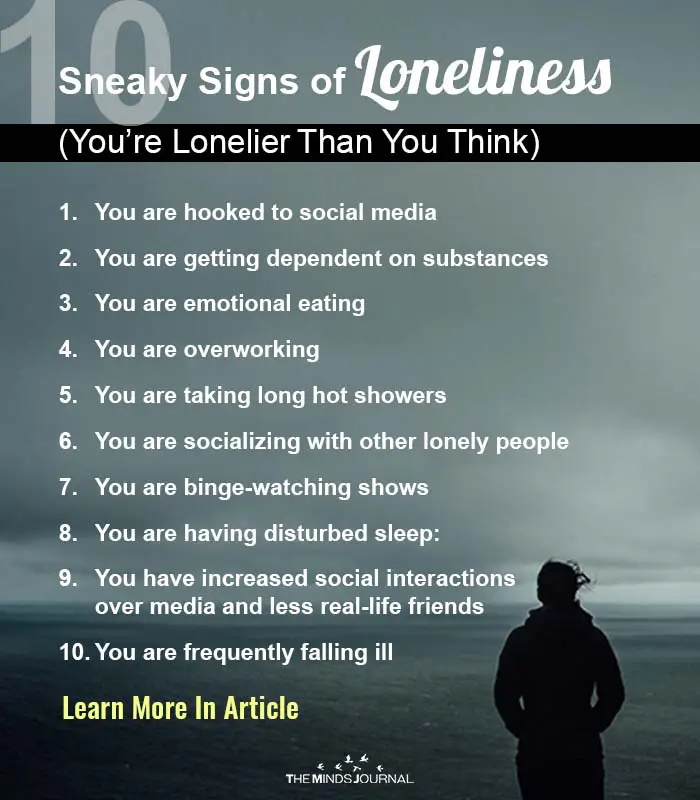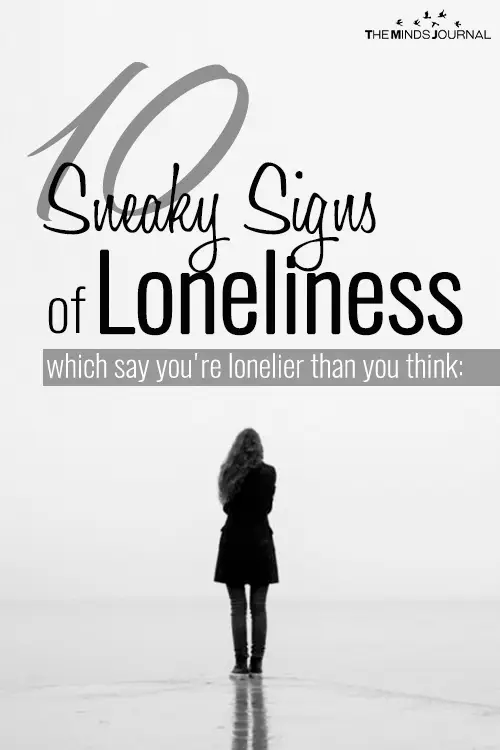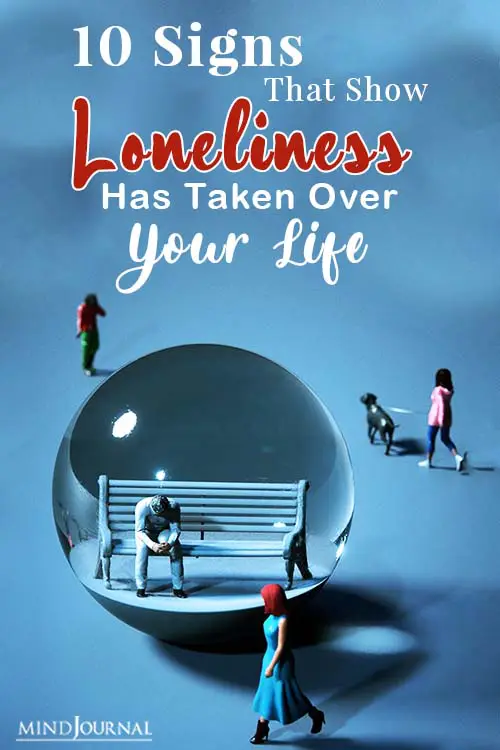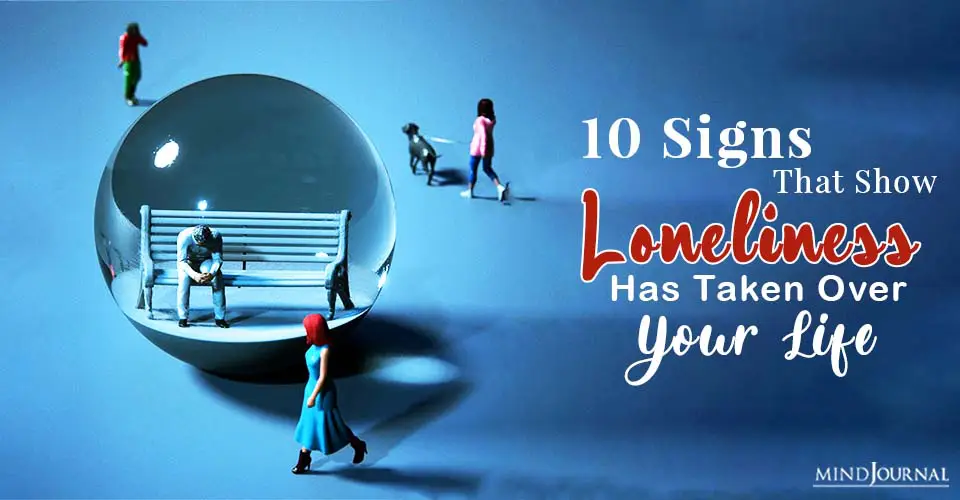Every human being has the need to socialize. Loneliness is an unwanted and unpleasant experience that stems from a significantly diminished social interaction with his/her fellow mates, in both quality and quantity.
Even though social isolation is an objective concept, but the signs of loneliness from social isolation is subjective to every individual.
Some people intentionally avoid social contact and they like it that way. These people crave the absence of social interactions because they prefer to be by themselves. People such as these do not consider a complete or partial lack of social connection as an undesirable experience in the first place.
Loneliness occurs when there is a disparity in the actual social relations of the person with his/her desire for social contact. Some loneliness result from a shift in the social needs of a person rather than the actual level of social connection. A person will not necessarily have to be alone to feel lonely. A person can even feel lonely in a crowd.
Related: The Most Terrible Poverty Is Loneliness
Loneliness, in a painful warning signal that a person’s social relations are deficient in some important way. Loneliness also has innumerable detrimental effects on both the psychology and the physiology of a person. Empirical findings regarding loneliness also point at the harmful effects of persistent loneliness on mental health. Persistent loneliness builds the foundation for depression, increases the risk of suicide, and in several ways jeopardizes the psychological well-being of a person.
Loneliness is indeed a serious public health issue, especially for millennials. In a life so busy, people hardly find time to communicate beyond necessity. Quite naturally, you might have felt lonely, at some point or the other in life. But those are temporary feelings. But when this loneliness occurs as a result of constant social isolation, it is bound to have a negative impact on your mental health.
As loneliness is subjective, you could be rightfully wondering why you need to introspect to find out if you are lonely. In all our busyness, it might be difficult for us to ever find out if we are lonely or not. Feelings of loneliness aren’t always loud enough for us to notice it. Often it comes disguised in very innocent signs which you might miss out on.
Here are 10 signs of loneliness which shows that you are lonelier than you think

1. You Are Hooked To Social Media.
Today, there is none who isn’t on social media. It has become a crucial part and parcel of our lives. But it is quite unnatural if every time you find a leisure moment, you are fidgeting with your phone. A research study shows that there is a connection between loneliness and social media addiction. Social media is often used by lonely people to virtually gain social approval and recognition.
The study found out that: those who spend more than two hours a day on social media were twice as likely to feel lonely than those who spent 30 minutes or less on social media platforms.
2. You Are Getting Dependent On Substances.
In a study, Heinrich and Gullone indicated that feeling of loneliness is directly related to a person’s detrimental physical and psychological health and is often associated with depression and substance abuse (1).
This study further concludes that alcoholism and other forms of substance abuse is used as a measure to discard the feeling of loneliness and acquiring a feeling of security. Similarly, drug abuse could be a way to satisfy emotional and psychological needs (2).
If you are noticing yourself smoking an extra couple of cigarettes, it might just not be a temporary stressor, it might as well be your underlying signs loneliness. Depending on substances gives you a feeling that you have something to belong to.
Related: What is Emotional Eating and 7 Expert Ways To Combat It
3. You Are Indulging In Emotional Eating.
Hunger is not always triggered by our need to replenish our energy for physical strength but it is often an excuse to curb loneliness. Perceived isolation is one of the main triggers and reasons many people go off their track with food habits.
The trigger for such behavior is essential in having deleterious chemistry with our body, appearance, and food. Their perceived social isolation by others, on being negatively evaluated for their wrong eating habits sets them in a noxious cycle of fight or flight mode. To avoid this conflict, they often engage in emotional eating.
Lonely people often eat to feel the void inside them. It is a physical act of metaphorically filling the void that they want to avoid slipping into.
“When you no longer believe that eating will save your life when you feel exhausted or overwhelmed or lonely, you will stop. When you believe in yourself more than you believe in food, you will stop using food as if it were your only chance at not falling apart.” – Geneen Roth
4. You Are Overworking.
Often times our burnout at work is not a result of workload but underlying signs of loneliness. While overworking is basically a personal choice and often circumstantial, some people work extra even when they are mentally and emotionally drained and in need of rest.
But why do you need to keep yourself ‘extra’ busy? And here lies the answer – because you believe if you sit ideal, the nagging, sinking feeling of loneliness will come to haunt you.
If you are frequently feeling like you are compromising health-promoting lifestyle to cater time to work, you must ask yourself why.
5. You Are Taking Long, Hot Showers.
Hot showers related to loneliness? You must be wondering how!
Recent research shows that feelings of social warmth or coldness can be induced by experiences of physical warmth or coldness, and vice versa.
People often tend to self-regulate their feelings of social warmth through applications of physical warmth, without being explicitly aware of it. This means if you love taking warm showers by the end of the day, or your warm bath hours are expanding by the day, you might unconsciously be trying to reduce the social coldness (being socially aloof) by inducing physical warmth.
Related: The Loneliness You Feel With Another Person
6. You Are Socializing With Other Lonely People.
Unfortunately, loneliness is not only about ‘not having friends’. It’s also about interacting with the right group of people.
A study in 2010 concluded that loneliness is contagious in nature and spreads in certain social networks. Are your friends also complaining of being lonely and left out? You might be catching loneliness from them.
7. You Are Binge-Watching Shows.
Research at the University of Texas at Austin found out through a survey of 316 participants, that there is a directly proportional relationship between loneliness and binge-watching television series.
If you are constantly clicking ‘next’ on a loop, you might be using television shows to distract yourself from the feelings of loneliness.
8. You Are Having Disturbed Sleep.
Research back in 2011 at Dakota concluded that fragmented sleep could be associated with loneliness. Are you having difficulty with sound sleep? Are you waking up in the middle of the night or having trouble falling asleep?
The reasons behind this connection are not quite clear but social insecurity might make you worry and stress over your social worth. Worrying and overthinking it might cause you to lose sleep.
9. You Have Increased Social Interactions Over Media And Fewer Real-Life Friends.
Your social life is not judged by the number of friends you have on your friend list. You might be constantly adding new friends over social media, even frequently connecting to them, chatting with them but something doesn’t quite fill the void within you.
When you have something crucial to share about your life or spend some quality time with another soul, you find that your friend’s list is empty. If this situation rings true for you, you might really be lonely.
Related: 5 Truths About Loneliness And How To Deal With It
10. You Are Frequently Falling Ill.
“Being lonely won’t just make you miserable; it could also suppress your immune system and knock years off your life,” the Daily Mail reports. Loneliness only doesn’t hamper your social life and deteriorate your mental health but also leads to more inflammation and greatly reduces the efficiency of the immune system.
Are you frequently catching a cold? Loneliness makes people more susceptible to virus attacks.
Loneliness can be combated. But the most important step to doing so is identifying the sneaky signs of loneliness. Having a positive attitude towards your feelings and regulating negatively inclined challenging thinking patterns will help you easily cope with loneliness. If you feel paralyzed with profound and persistent feelings of loneliness you should immediately seek professional help.
References:
1. Heinrich LM, Gullone E. The clinical significance of loneliness: a literature review. Clin Psychol Rev. 2006;26(6):695–718. doi: 10.1016/j.cpr.2006.04.002. 2. Page RM, Cole GE. Loneliness and alcoholism risk in late adolescence: a comparative study of adults and adolescents. Adolescence. 1991;26(104):925–30.









